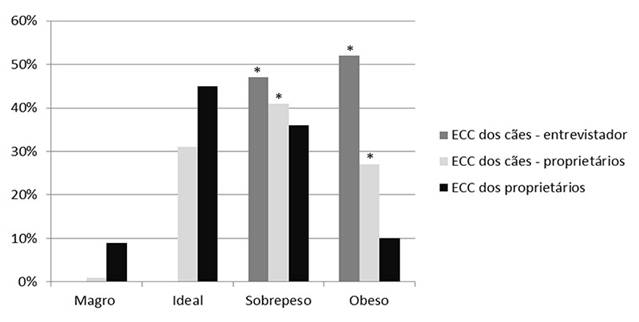Obesity is the most common nutritional disease in dogs and may cause many changes in body systems and limit the longevity of the animals. Many factors contribute to the development of obesity in dogs, as genetics, breed, age, lack of physical activity, caloric food composition, type and form of nutrition, hormonal disorders, medicine, and factors related to the owners. Due to the lack of studies on the nutritional and environmental aspects involved in the development of canine obesity, the present study aimed to obtain information through owners surveys. Interviews with 254 owners of overweight or obese dogs were conducted at University Veterinary Hospitals. Dogs were selected through body condition score (BCS) from 6 to 9, according to the scale described by LAFLAMME (1997). The data were coded, tabulated and submitted to frequency analysis and correlation (Spearman Test). Most affected dogs were castrated adult female of mixed breeds (33%) or poodles (17%). For most respondents (36%), food excess was the possible reason for the weight gain of pets. Only half of the owners have tried to achieve weight control of their pet, especially reducing the amount of food. There was no correlation between body condition of the owner, educational level, family income and home environment of the owners with pets BCS. Information obtained may help identifying nutritional and environmental factors involved in the development of obesity in dogs and can provide better preventive measures and strategies for treatment
dog; survey; feeding; epidemiology


